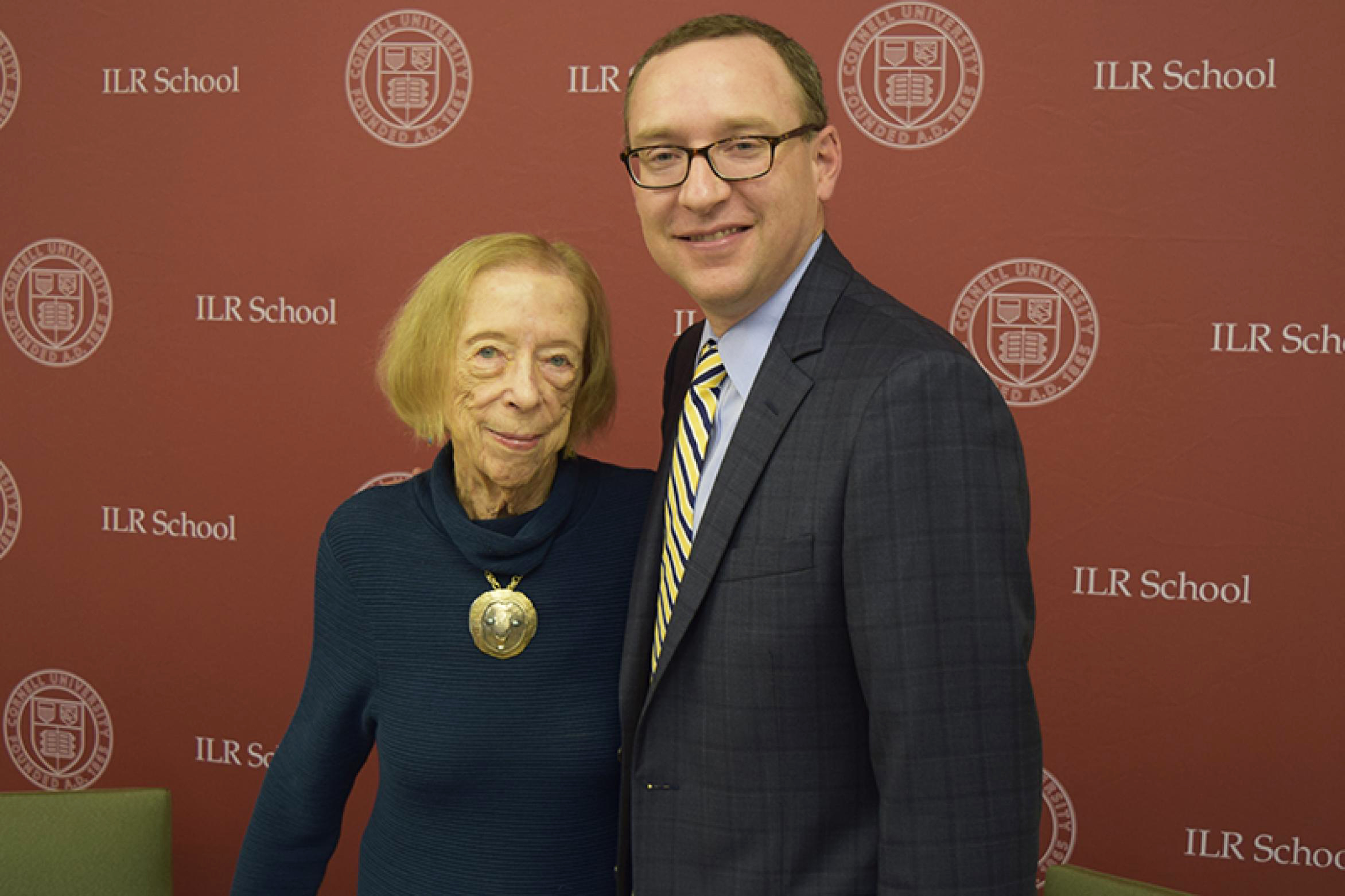Professor's $1M gift to ILR continues her life's work
By Stephen D’Angelo

Lois S. Gray, the Jean McKelvey-Alice Grant Professor Emerita of Labor Management Relations at Cornell University’s ILR School, wants to ensure faculty, researchers and students focused on labor studies have the ability “to fulfill the mission of the Worker Institute.”
To help ensure funding is available for ILR’s labor research and that it remains a distinguishing factor of the school, she donated $1 million to establish the Harry Katz Fund for Innovation in ILR’s Worker Institute.
“The fund is designed to provide financial incentives for collaboration between resident and extension faculty in relation to priority programs of the institute,” Gray said.
“The Worker Institute is one of relatively few institutions aiming to bring together research with training and education to focus on worker rights and collective representation,” Gray continued. “This fund is designed to ensure the continuation of this work and also to aim for excellence and impact in future activities of the Worker Institute.”
The Worker Institute launched in 2012. It started from the idea, initially proposed by a group of extension and resident faculty, that strong worker rights and collective representation are essential elements of a vibrant, prosperous, democratic society.
Through research, education and public discourse, the institute applies innovative thinking and problem-solving approaches to the workplace, economy and society in the interests of working people and their families.
“As dean, Harry Katz supported and implemented the idea of a Worker Institute, which would bring together resident and extension faculty specializing in worker rights and collective representation under one structure, thereby encouraging synergy,” Gray said.
“The fund is formed in that same spirit and his name symbolizes that.”
Harry Katz, Jack Sheinkman Professor of Collective Bargaining in ILR’s Department of Labor Relations, Law and History, is “profoundly honored to have my name associated with her and the generous gift she has provided to the ILR School and the Worker Institute.”
Katz continued, “One of the pleasures of being at ILR for over 30 years is that I have had the opportunity to get to know Lois as a colleague and a friend. During my deanship, for example, she was a constant source of helpful advice. She is remarkable in so many ways that it would be impossible to me to succinctly summarize her virtues.”
According to Lowell Turner, Worker Institute director and ILR professor of international and comparative labor, this “generous gift from Lois Gray is especially important at a time when efforts to advance worker rights and collective representation – our core mission – face many obstacles.”
“We have learned from Lois to take Cornell’s land-grant public service mission seriously, and much of our client base is resource poor and greatly in need of support,” Turner continued. “This endowment expands our capacity for innovative research, education and public engagement on behalf of workers and their families, with an underlying goal of reducing the vast economic inequality that undermines social cohesion and democratic vitality.”
For Gray, her accomplishments at ILR truly have been her life’s work.
She joined ILR in 1946 and directed ILR's first extension office in Buffalo and moved to New York City in 1956 to direct the ILR Metropolitan Extension District office. In 1976, Gray became associate dean and director of ILR's Extension Division, and was named the Jean McKelvey-Alice Grant Professor of Labor-Management Relations at ILR in 1990.
She became an emeritus professor and chair holder in 1998 and continues her research and teaches labor economics, collective bargaining and labor union structure and government.
“The fact that it’s my life’s work means that I always thought it was very important work, therefore, I would like it to continue after my lifetime,” said Gray. “I would like to carry on the work of the school I value most – innovative projects dealing with worker rights and collective representation.”
Stephen D’Angelo is a communications specialist at the ILR School.
Media Contact
Get Cornell news delivered right to your inbox.
Subscribe